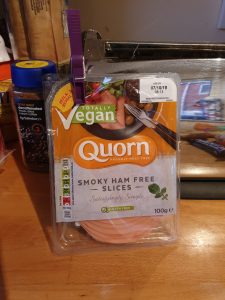
An Employment Tribunal in Norwich ruled last week that vegetarianism was a not a belief as such and would not qualify as a “protected characteristic” for the purposes of discrimination law. Put simply, in the opinion of Judge Robin Postle, vegetarianism is merely a “life-style choice” and cannot be described as a substantial aspect of human life and behaviour. The upshot of this reasoning is that if vegetarians are on the receiving end of prejudicial treatment, they cannot claim any special legal redress. We would suggest that this finding is incorrect in terms of the law in England and Wales, and furthermore, it is incompatible with the European Convention on Human Rights.
Firstly, it is important to explain the context. Not all forms of discrimination at work are unlawful per se: e.g. if a company refuses somebody a job because they are deemed to be overweight, or requires staff with tattoos to keep their arms covered even in summer, despite allowing workers without body-art to wear short sleeves, they are not in breach of any legislation. Neither weight nor tattooed skin are protected characteristics for the purposes of the Equality Act 2010. This means that whilst such policies might be unfair, the law will not intervene. However, “religion and belief” is a protected characteristic, so the question arose as to whether vegetarianism could constitute a philosophical belief. The Employment Tribunal here found, in our view wrongly, that it did not.
Given that there is no absolutely no doubt that veganism can constitute a belief which human rights law will protect, as both the European Court of Human Rights in Strasbourg and domestic courts have repeatedly affirmed, it is difficult to find any rational justification for treating vegetarianism differently. It is true, of course, that many vegans would argue that abstaining from meat, whilst supporting the dairy industry (which involves large scale animal death and suffering) is an illogical stance to take, but that debate has absolutely nothing to do with whether vegetarianism qualifies for legal protection. To come within the scope of freedom of conscience, a belief must be sincerely held and relate to a serious matter, and there is no need for it to clear any hurdles in terms of third party logic or approval. The reason for this is self-evident: if equality law protects those within the social mainstream, but excludes minorities, it becomes chocolate-teapot useless.
Many people choose to exclude some food groups from their diet, and products from their shopping basket, because they hold beliefs relating to animal welfare and/or the environment. There is a wide spectrum of practice when it comes to where individuals draw the line, as well as a range of differing motivations and values. For instance, Person A might avoid factory farmed meat and dairy, palm-oil and plastic, but consume meat from animals reared on their own small-holding; whilst Person B might strictly avoid eating meat and dairy products in any circumstances, yet be willing to buy groceries containing sustainable palm-oil and allows her children unlimited plastic toys; and Person C might abstain from meat and palm-oil, but not dairy, and make an effort to reduce plastic use. There is a whole gamut of possible permeations, yet in every case, a person is making conscious decisions in relation to consumption, based on a serious set of convictions about non-human animals and/or the planet which we share with them.
The labels which individuals choose when they self-identify are complicated and messy. The word “vegan” especially is hotly contested at times, with arguments raging as to what level of personal commitment to avoiding the fruits of animal exploitation is sufficient for someone to legitimately self-identify as vegan. However, for present purposes, the label attached to a conscious position, vegan, vegetarian or something distinct, is a distraction from the main point. In the examples above, it seems impossible to justify according differing levels of protection based on some arbitrary external criteria. We would never seriously consider giving different branches of a religion varying degrees of recognition and status, and consequently, why should we presume to make equally arbitrary judgements about people adopting conscientious dietary choices over food?
In very simple terms, if a person believes that it is wrong to kill and eat animals, calls themselves a vegetarian and is mocked or discriminated against on that basis, why is this materially different from someone who believes that it is wrong to kill and eat animals, calls themselves a vegan and is mocked and discriminated against on those grounds? Both forms of self-identification may reflect a profound and consistent commitment to an ethical position, and although many vegans wish to convince vegetarians to take a further step and abandon dairy, it is also the case that many conservative Christians wish that liberal Christians would start or stop a whole host of things. As we don’t differentiate in terms of protection on the basis of intra-denominational struggles where religion is concerned, why should matters of conscience be accorded lesser importance?
Related Articles
Vegetarians cannot be victims of discrimination judge rules (The Telegraph 13/9/19)
Guide on Article 9 of the European Convention on Human Rights (European Court of Human Rights 30/4/19)
Equality and Human Rights Commission Protected Characteristics (Equality and Human Rights Commission)


